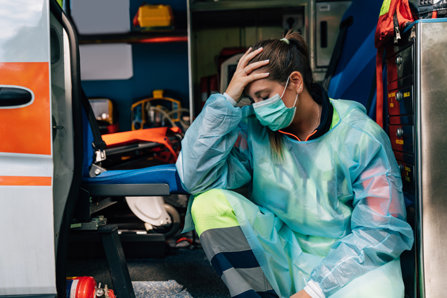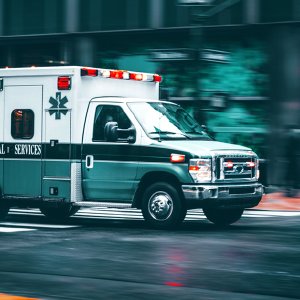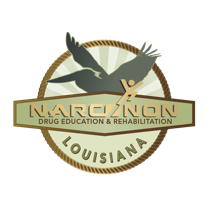COVID-19 Didn’t Slow Down Addiction

2018 marked the first decrease in annual overdose deaths since 1990. Over the last three decades, overdose deaths have killed so many people the average life expectancy in the United States has been reduced. Many in the addiction field were hopeful the deaths caused by the drug epidemic might have been beginning to slow down. Unfortunately, this was not the case, as 2020 has turned out to be one of the worst years in history for overdose deaths.
Those with loved ones who struggle with addiction were worried throughout the pandemic, not just because of the virus. Isolation can be very hard on anyone. The annual Monitoring the Future Survey released by the National Institute on Drug Abuse clearly shows these fears were not misplaced.
“Our understanding of how the COVID-19 pandemic affects drug use is evolving, but we do know that social isolation, even for short periods, can cause psychological distress that may drive some people to seek out psychoactive substances,” said Dr. Palamar.
The lockdowns in early 2020 made many theorize that the availability of drugs would dwindle, and thus overdoses would follow the same trend.
“What we really see right now are supply-chain disruptions of nearly all illicit drugs,” Uttam Dhillon, acting administrator at the Drug Enforcement Administration in April of 2020
While there was an initial drop in drug supply in early 2020, which could indicate fewer drugs in communities across the US due to border lockdowns and isolation, figures from later in the year show supply increased in the late summer and fall of 2020. It is unclear what caused the bounce back; the prevailing theory being that the initial dip occurred due to police forces being spread thin at the beginning of the pandemic—followed by an increase when they could get back on top of routine operations. The above drop and rebound of drug seizures, however, were specific to methamphetamines and marijuana.
According to the National Institutes of Health, for drugs like heroin, fentanyl, and cocaine, there was no drop in seizures at any point during the pandemic. Of course, drug supply and seizures are only one part of the equation.

Many in the addiction field were hopeful the deaths caused by the drug epidemic might have been beginning to slow down. Unfortunately, this was not the case. Between May of 2019 to May of 2020, the United States saw the highest number of overdose deaths in history, with the CDC reporting over 81,000 drug overdose deaths during that period.
For many struggling with addiction, the COVID-19 pandemic became the perfect storm. Isolation can be challenging for anyone but combine this with a substance abuse issue, and you have a truly deadly combination. Those who use methamphetamines or other stimulants could have a psychotic break or die. Drug overdose deaths caused by psychostimulants such as methamphetamines saw a 34.8% increase. At the same time, cocaine-related deaths saw a 26.5% increase during the same period.
While with an opiate user, the risk of a fatal overdose dramatically increases when you are isolated from anyone who could contact emergency medical services in the event of an overdose. The most significant contributor to overdose deaths is still synthetic opioids such as fentanyl and carfentanyl. Synthetic opioid-related deaths rose by 38.4% during the same 12 month period.
The CDC has plans to combat this continued increase in fatal overdoses. Their plan’s primary points are to increase naloxone availability, expand awareness efforts, early intervention on high-risk individuals, and improve overdose outbreak detection and response.
While the CDC works on combating these issues on a national scale, it is still essential for everyone to learn the risk factors of a fatal overdose, what they can do in the event of an overdose, and steps to getting those in the high-risk category into treatment.
Living with an addict can be a miserable experience spending day and night worried about getting a call they are in the hospital, jail, or worse, the morgue. If you have a loved one struggling with addiction, you know how difficult and stressful it can be. Knowing what steps to take to make a change not only in your own life but in the life of your loved one is essential.
We have two guides below you can download to help you learn about addiction and getting your loved one the help they need.
Intervention Guide:
https://success.narcononnewliferetreat.org/intervention-e-book/
Drugs: What You Need To Know:
https://www.narcononnewliferetreat.org/get-help/download-drugs-booklet.html
If you are unsure where to start with getting your loved one help, give us a call today and we will be happy to help.
Sources:
- https://www.nih.gov/news-events/news-releases/law-enforcement-seizures-methamphetamine-marijuana-rose-during-pandemic
- https://www.drugabuse.gov/drug-topics/related-topics/trends-statistics/infographics/monitoring-future-2020-survey-results
- https://www.cdc.gov/media/releases/2020/p1218-overdose-deaths-covid-19.html
- https://www.nytimes.com/interactive/2019/07/17/upshot/drug-overdose-deaths-fall.html
- https://www.wsj.com/articles/coronavirus-disrupts-illegal-drug-supply-in-u-s-dea-official-says-11587043059


